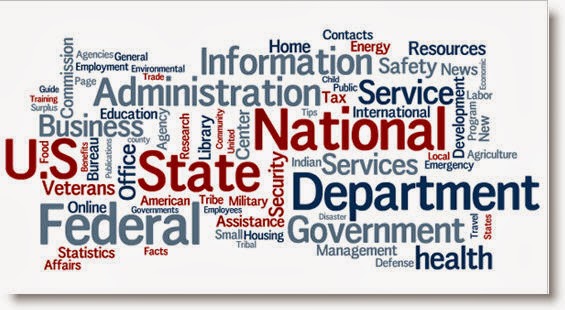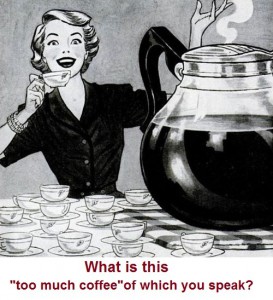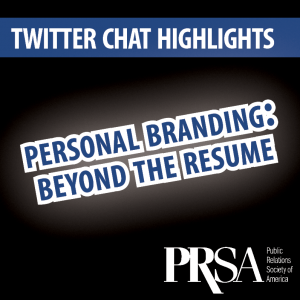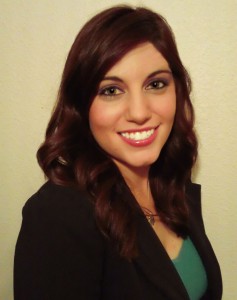This is a re-post from PRSA’s blog PRSAY. As previously featured…
Most public relations graduates exit college somewhat overwhelmed by the myriad decisions they are faced with – which city to move to; should they work for an agency, boutique or corporate; what field of PR should they practice; etc…
The options might seem endless.

For some, whether or not to join PRSA might be among the choices they’ll need to make. While the path to professional development and career growth often leads to PRSA, membership isn’t always part of the immediate career plan for young PR professionals – as Heather Sliwinski mentioned in the first installment of our New Pros Survival Guide – for others, especially PRSSA members, the transition to PRSA is anticipated and for a few it is already predetermined.
Lauren K. Gray, PRSSA Immediate Past President (until recently) and PRSA New Professionals Section Blog Co-Chair, discusses her unique path from PRSSA to PRSA and offers some advice for new pros making the transition from student to professional. She also adds a few career tips to your New Pros Survival Guide.
Q. How did your involvement in PRSSA affect your decision to join PRSA?
Lauren Gray: My situation was a little different in joining PRSA because I was technically still a PRSSA member. As the Immediate Past President for the PRSSA National Committee, it was imperative I join PRSA as my position served as the link between PRSSA and PRSA to encourage the transition from the pre-professional organization to the professional organization. Even if it would not have been mandatory to join, I still would have joined PRSA because of the value I received from PRSSA which I knew would continue in PRSA and I wanted to continue my own professional development.
Q. How does PRSA membership differ from PRSSA?
LG: It’s really not that different. You get out of both organizations what you put into them. I was very active as a PRSSA member and I’m still very active as a PRSA member. I still learn and grow through the volunteer opportunities I sign up for. All of my PRSSA friends are now PRSA friends and the fun continues! Professional development wise, I think the webinars and conference sessions are more in-depth over the basics and introduction levels of PRSSA sessions.
Q. What is your best experience so far as a PRSA member?
LG: This year, the best experience I’ve had is serving with a very talented and collaborative PRSA New Professionals Executive Committee. I’ve really had a lot of fun serving as the blog co-chair with Jess Noonanand we’ve done a good job rebranding the blog to The Edge and updating the design and layout. It’s been great to collaborate with many of the other chairs on the committee and I was really excited we were able to put together a presentation for PRSA International Conference on understanding the importance of today’s hybrid PR professionals.
Q. How has being in PRSA helped you to boost your career?
LG: Two ways: friendships and professional development. Most of my closest friends are PRSA members or will soon be members. They’ve supported me with career changes and personal council as well as providing friendship and support in other ways. Those types of friendships are invaluable. From working with so many people in PRSSA and PRSA, I’ve learned how to work with different personalities, how to plan large and small-scale events from conferences to career forums, how to manage a running blog and obtain writers, how to be a follower or adviser when it’s someone else’s turn to lead and the importance of continued learning throughout my career. That’s probably not even all the ways PRSA has helped my career, but it’s a start and I know that list will keep growing.
Q. What is one piece of key advice you would give a recent graduate or new pro to help their career?
LG: Take chances. It seems so many communication and PR majors are determined to land at one of the big agencies we all know, but they might not understand they could have an even better and more valuable experience at a smaller agency, a corporation or a startup. As new pros, now is the time to take chances and figure out what you want to do early before you’re stuck doing something you don’t want to do later. Apply for or take a job you never thought you would be in and see if you like it. You never know who you may meet and where you may land.
Q. Is there any rest of the “wickedly determined?” Can a recent grad take the summer “off” and prep for their interviews in August?
LG: Absolutely! I know many graduates may graduate on a Friday or Saturday and start work that next Monday, but it’s a good idea to take some time off because once you start working there are no more summer breaks and vacation time is short. Enjoy your last real summer! Take informational interviews, take some time off and prep for interviews in the fall. I think it’s great to land a job in PR or communications for the summer, but volunteering or moving to a different location for another job can be just as valuable. Success isn’t measured in jobs or job titles; it’s measured in the amount time you set aside to reach all of your goals, including just having fun and being young.
Q. Anything else you’d like to add?
LG: It’s one thing to be a PRSA member, but it’s another thing to be an involved member. Like I said above, you will only get out of this organization what you put in it. Take time to listen to the webinars, write a guest post for one of the PRSA blogs, attend local conferences and attend local meetings. Look into joining a national or local committee as well; we’re always looking for volunteers and committee members! Being in PRSA is rewarding in so many ways, but you have to put yourself out there and really get involved first.
 Lauren K. Gray is a new professional working in marketing, public relations and social media communications and currently works as a Project Manager at The Visual Brand in Westport, Connecticut. Connect with her on LinkedIn and Twitter.
Lauren K. Gray is a new professional working in marketing, public relations and social media communications and currently works as a Project Manager at The Visual Brand in Westport, Connecticut. Connect with her on LinkedIn and Twitter.


 Nicole Ramsey works as a Strategic Communications Manager for the City of Charlotte’s Corporate Communications and Marketing department in Charlotte, NC. She also is a member of the PRSA Charlotte’s New Professionals board. Nicole graduated with a M.A. in Communication Studies from the University of North Carolina at Charlotte and a B.A. in Communications from the University of Louisville.
Nicole Ramsey works as a Strategic Communications Manager for the City of Charlotte’s Corporate Communications and Marketing department in Charlotte, NC. She also is a member of the PRSA Charlotte’s New Professionals board. Nicole graduated with a M.A. in Communication Studies from the University of North Carolina at Charlotte and a B.A. in Communications from the University of Louisville. 1) Put Down the Coffee
1) Put Down the Coffee Megan O’Neal graduated from UCLA in 2011 with a Bachelor of Arts in Communication Studies, emphasizing in mass communications. She is currently the PR Coordinator at Marketing Design Group and volunteers with the National
Megan O’Neal graduated from UCLA in 2011 with a Bachelor of Arts in Communication Studies, emphasizing in mass communications. She is currently the PR Coordinator at Marketing Design Group and volunteers with the National  Working with the media is a huge part of any PR career.
Working with the media is a huge part of any PR career. Nelli Tokleh is an assistant account executive at Nunez PR Group in Dallas. She received her undergraduate degree in public relations from the University of North Texas and her Master’s in Business Administration from Texas Woman’s University. Nelli is an active board member at PRSA Dallas and enjoys traveling, shopping and blogging about fashion and food. Connect with her on
Nelli Tokleh is an assistant account executive at Nunez PR Group in Dallas. She received her undergraduate degree in public relations from the University of North Texas and her Master’s in Business Administration from Texas Woman’s University. Nelli is an active board member at PRSA Dallas and enjoys traveling, shopping and blogging about fashion and food. Connect with her on 
